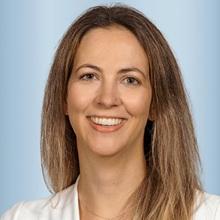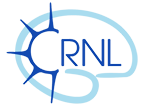Nora Raschle (University of Zurich, Switzerland)
Jérôme Prado (EDUWELL)

How do families shape children's brain development? Can we measure neural similarity between parents and children, and does it predict child outcomes?
These are some questions that the emerging and rapidly expanding field of intergenerational neuroimaging is attempting to answer, informing how we understand the transmission of traits, abilities, and vulnerabilities across generations.
Nora Raschle from the University of Zurich, a leading researcher in this domain, will present her work on Thursday, December 11 at 10:30am in the Neurocampus amphitheater. Using data from over 250 parent-child pairs, she will present studies demonstrating that measurable neural similarity between parents and children goes beyond genetics, as it is modulated by parental experiences and predicts children's mental well-being.
Abstract: Family environments shape children’s socioemotional brain development, yet the neural pathways linking parental characteristics to child outcomes remain incompletely defined. Intergenerational transmission refers to the transfer of genetic and non-genetic influences from parents to their children. Across more than 250 family members from our SMILIES project, we introduce Familial Neural Similarity (FNS) as a novel measure of cross-generational resemblance in brain structure and function, and examine its associations with socioemotional child outcomes and contextual factors. Using structural MRI, we demonstrate that FNS is measurable and feature-specific. In the corticolimbic tract (CLT), a pathway central to socioemotional processing and mental health, biologically related parent-child dyads show greater similarity than unrelated adult-child pairs. Higher CLT similarity is further linked to children’s mental well-being, and moderated by parental early-life experiences, particularly in fathers. Functional MRI data converge with these structural findings. During socioemotional movie watching, whole-brain FNS exceeds that of unrelated pairs, with sex-specific amplification in mother-daughter and father-son dyads. Regionally, increased similarity emerges in prefrontal and temporal systems, notably the ventrolateral prefrontal cortex, where FNS further links to parent-child similarity in internalizing symptoms and is modulated by parents’ emotion-regulation strategies. Complementary data from an explicit Theory of Mind (ToM) task reveal elevated FNS in the right temporoparietal junction, a core region for mentalizing. Collectively, these findings thus establish FNS as a context-sensitive neural phenotype linking family history and experiences to children’s socioemotional brain organization and well-being. This work advances an intergenerational social neuroscience framework, moving beyond descriptive resemblance toward mechanistic understanding of how socioemotional learning and vulnerability are transmitted across generations
Bio: Nora Maria Raschle studied neuropsychology at the University of Zurich and completed her PhD in collaboration with Boston Children’s Hospital and Harvard Medical School (USA) in 2011, focusing on the early detection of developmental dyslexia. After two more years as a postdoctoral researcher in Boston, she returned to Basel in 2013, where she worked as a scientist at the University Psychiatric Clinics and the University of Basel. Since 2019, she has been working at the Jacobs Center for Productive Youth Development at the University of Zurich. Nora Raschle is a professor of developmental neuroscience and conducts research in the fields of development, brain, and behavior. Her research focuses on investigating the foundations of human brain and behavioral development, early influencing factors, and their relationships to developmental and psychiatric disorders in childhood and adolescence. Using structural and functional magnetic resonance imaging (MRI) as well as behavioral or physiological assessments, her research group examines how abilities, learning, and socio-emotional development unfold. Environmental factors and biological influences are analyzed to understand their impact on developmental trajectories across relevant time windows, for example through intergenerational neuroimaging studies. Beyond her research, Nora leads Growing Brains, an innovative science outreach initiative that makes developmental neuroscience accessible to the public through dialogue events, learning materials, and even a graphic novel. The project brings brain science to adolescents and adults, addressing topics like mental health, lifelong learning, and the teenage brain (https://www.growingbrains.ch/en/home).
CRNL | CH Le Vinatier | Bâtiment 462 Neurocampus Michel Jouvet | Amphithéâtre | 95 Boulevard Pinel | 69500 Bron











